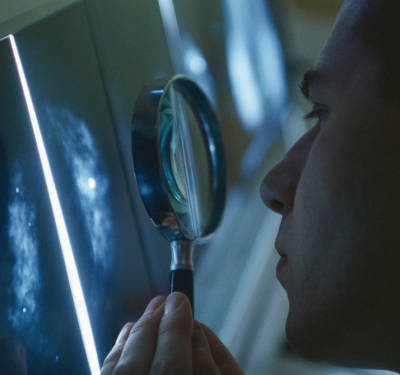Raising breast cancer awareness
While the rates of breast cancer continue to rise, awareness in the Arab world remains minimal.
Published online 31 October 2015

Awareness of breast cancer screening is still minimal among Arab women.
© BSIP SA / Alamy Stock Photo
Breast cancer is one of the most common forms of cancer in the world, but is highly treatable if detected early enough. In the Arab world, however, its incidence has increased in the past 24 years, with women being diagnosed at more advanced stages of the disease.
Tam Truong Donnelly of the University of Calgary and her colleagues conducted a study and found that very few Arab women are aware of, or participate in, regular breast cancer screening activities such as self-examination, clinical examination and mammogram1.
They now recommend a number of intervention strategies to promote early detection of breast cancer in the Arab population, adding that it is imperative that healthcare professionals implement all of them and maximize the synergistic effects between them.
They include public education material about breast cancer and breast cancer screening programmes, delivered via a variety of media, and targeted to both women and men; encouraging physicians to incorporate breast cancer screening recommendations into their daily routine with female patients; and enhancing access to appropriate treatments by providing free mammograms, especially for women of lower socioeconomic status.
These interventions should be delivered in such a way as to minimize any possible barriers, including cultural and social ones. Educational materials should not only be written in Arabic, but should also include information that is easy to read and understand.
“Developing educational materials and communicating it to the public require culturally sensitive and socially appropriate language that is understandable and accessible to both Arab women and men,” says Donnelly. She feels that the biggest challenge facing raising awareness about breast cancer in the Arab region is that there is hardly any education material specific to the context of the Middle East.
“There is a lot of stigma attached to breast cancer in not only the Arab world, but also in many other societies,” she adds, where it is often seen as a death sentence. “Having breast cancer might impact a woman’s life or her family’s dynamics, because women’s health-seeking behaviours are not only influenced by a woman’s bodily experience but interconnected with her ability to care for her children and husband, participate in family activities, and contribute to the family’s social and economic condition.”
“Thus, educational materials should emphasize that participation in breast cancer screening can benefit both the individual and the family, and that breast cancer is not a death sentence if it is discover early.”
Reference
- Donnelly, T. T., Al Khater, A. H., Al-Bader, S. B., Al Kuwari, M. G., Abdulmalik, M., Al-Meer, N. & Singh, R. Promoting screening to reduce breast cancer mortality among Arab women: what do healthcare professionals need to do? Avicenna 2015, 3 (2015). | article
DOI: 10.1038/qsh.2015.84

